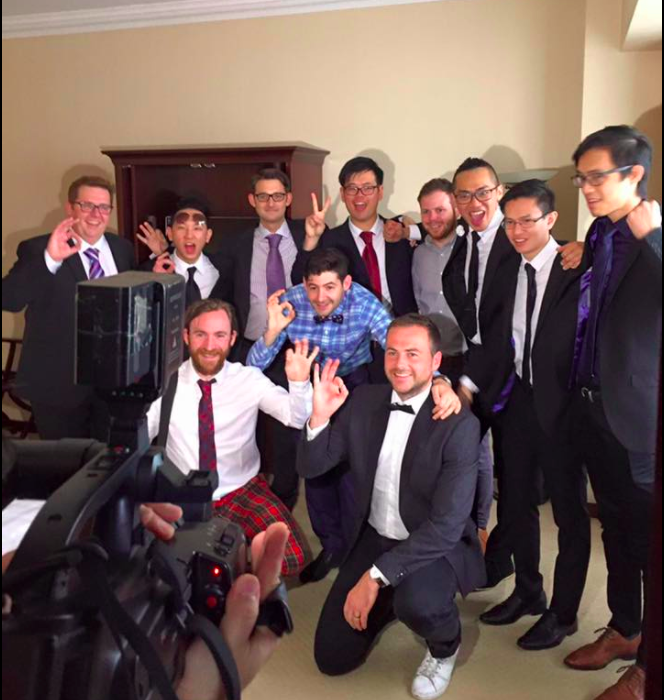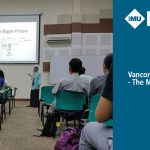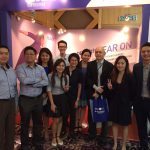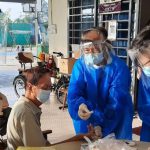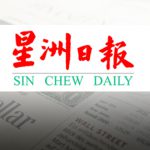Treating many work related injuries while serving as a medical officer in the Orthopedic and Traumatology Department developed Dr Noris Tan’s interest in the prevention of work related injuries and occupational health. 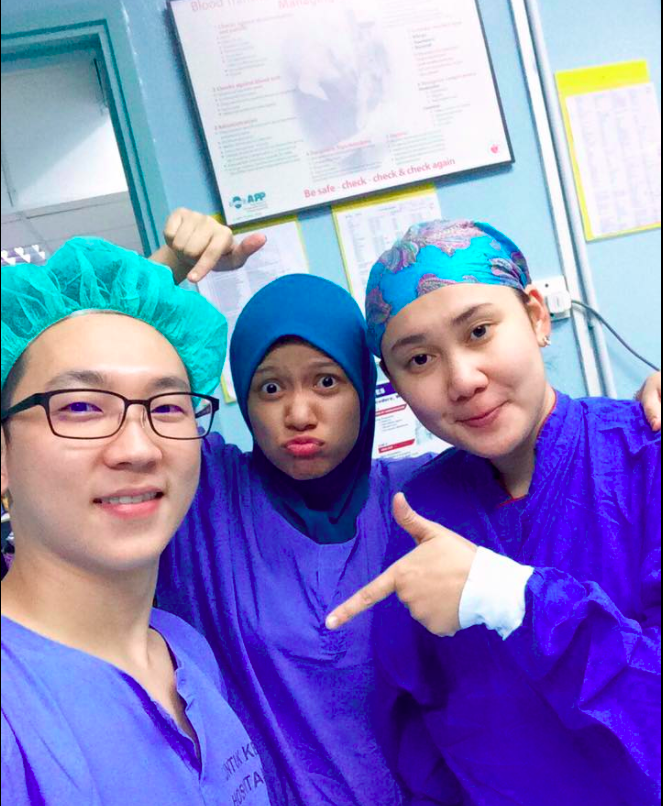 “I’ve never thought of anything other than orthopedics. But when I went for an Occupational Health Doctor course in National Institute for Occupational Safety and Health (NIOSH), I met Prof Dr Abu Hasan Samad, who inspired me a lot to become a part of occupational health. So far, I have no regrets switching my field of interest from orthopedics to occupational health.” Dr Noris is currently working at Gleneagles RAPID (Refinery and Petrochemical Integrated Development) in Pengerang, Johor where he is a medical officer providing emergency care and also an occupational health practitioner. He is also involved very much in drug and alcohol testing among workers in the RAPID as part of the policy of PETRONAS in promoting drug free workplace. “At Gleneagles RAPID, I work on 12 hours shifts, for 14 days in a row, regardless of whether it is a weekend or public holiday. Once I am done with the 14 days, I will be off for 14 days. In short, we say 2 weeks on, and 2 weeks off. During my 14 days on, 12 hours is pretty draining. But it’s nothing compared to on calls when I was in the government hospital. It’s just how you look at things. I’d say I prefer to work like this. The remaining 14 days off, I do freelance locums, training, going for courses and possibly in the near future teaching at IMU. I also read a lot – medical and non-medical – non-fiction books.”
“I’ve never thought of anything other than orthopedics. But when I went for an Occupational Health Doctor course in National Institute for Occupational Safety and Health (NIOSH), I met Prof Dr Abu Hasan Samad, who inspired me a lot to become a part of occupational health. So far, I have no regrets switching my field of interest from orthopedics to occupational health.” Dr Noris is currently working at Gleneagles RAPID (Refinery and Petrochemical Integrated Development) in Pengerang, Johor where he is a medical officer providing emergency care and also an occupational health practitioner. He is also involved very much in drug and alcohol testing among workers in the RAPID as part of the policy of PETRONAS in promoting drug free workplace. “At Gleneagles RAPID, I work on 12 hours shifts, for 14 days in a row, regardless of whether it is a weekend or public holiday. Once I am done with the 14 days, I will be off for 14 days. In short, we say 2 weeks on, and 2 weeks off. During my 14 days on, 12 hours is pretty draining. But it’s nothing compared to on calls when I was in the government hospital. It’s just how you look at things. I’d say I prefer to work like this. The remaining 14 days off, I do freelance locums, training, going for courses and possibly in the near future teaching at IMU. I also read a lot – medical and non-medical – non-fiction books.”  “RAPID is one of the major downstream oil and gas development of Malaysia by PETRONAS – an onshore project, mainly based in Pengerang. Currently, there is about 25’000 workers on site, and most of them are foreigners, from all over the world. We are expecting to reach 40’000 to 60’000 workers in this site by late 2017. As majority of the workers stay on site, we take care of many aspects of their living here, including food hygiene. For me, working here is definitely a stepping stone in terms of growth in the Occupational Health Service. RAPID is currently in the construction phase. So as expected, we foresee more injuries happening at workplace. So far, we have faced quite a few accidents at work place for example falling from height and motor vehicle accidents.”
“RAPID is one of the major downstream oil and gas development of Malaysia by PETRONAS – an onshore project, mainly based in Pengerang. Currently, there is about 25’000 workers on site, and most of them are foreigners, from all over the world. We are expecting to reach 40’000 to 60’000 workers in this site by late 2017. As majority of the workers stay on site, we take care of many aspects of their living here, including food hygiene. For me, working here is definitely a stepping stone in terms of growth in the Occupational Health Service. RAPID is currently in the construction phase. So as expected, we foresee more injuries happening at workplace. So far, we have faced quite a few accidents at work place for example falling from height and motor vehicle accidents.”
Dr Noris is of the opinion that IMU has prepared him well especially for his housemanship years. “The professors and lecturers in IMU have been a source of inspiration during the tough times throughout my undergraduate years and I would like to take the opportunity to express my gratitude to them. Thank you!”
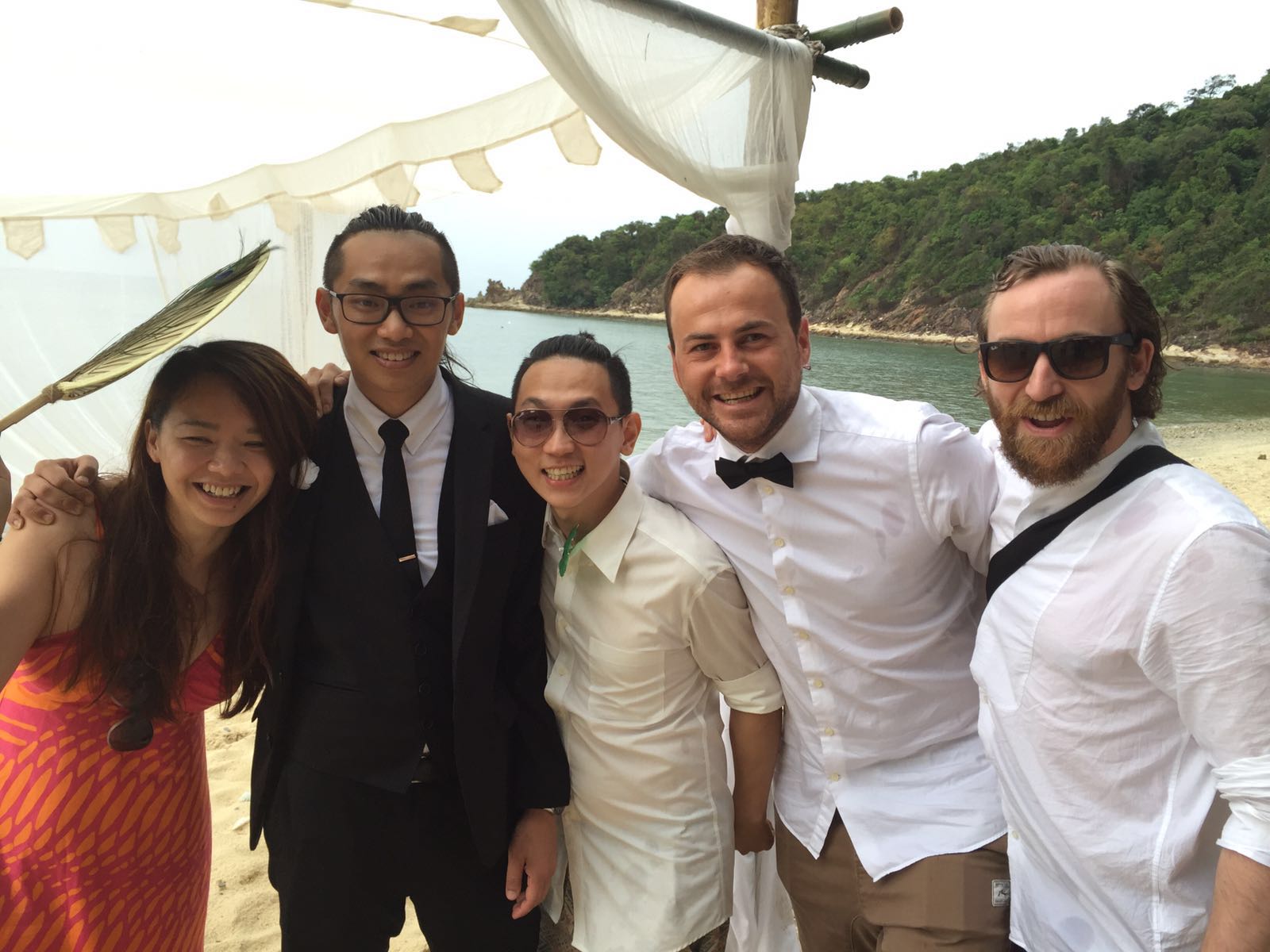 Dr Noris did his housemanship and also most of his medical officer years mainly in the state of Johor, in Hospital Sultanah Aminah, Johor Bahru, a tertiary hospital, trained under the surgical discipline, in Orthopedics and Traumatology. “I was a hardcore workaholic. Work was always my primary focus in life and something I truly enjoyed. I spend very little time with family and at that time, my girlfriend. However, a family illness at the 2nd year of MO-ship made me more aware of the importance of family and brought me back to Selangor. I started working in Plastics and Reconstructive Surgery at Hospital Kuala Lumpur (HKL) for a brief 3 months, before I entered back into the Orthopedic Department at HKL. After about a year there, I have decided to venture into something that I would have more quality time with the family.”
Dr Noris did his housemanship and also most of his medical officer years mainly in the state of Johor, in Hospital Sultanah Aminah, Johor Bahru, a tertiary hospital, trained under the surgical discipline, in Orthopedics and Traumatology. “I was a hardcore workaholic. Work was always my primary focus in life and something I truly enjoyed. I spend very little time with family and at that time, my girlfriend. However, a family illness at the 2nd year of MO-ship made me more aware of the importance of family and brought me back to Selangor. I started working in Plastics and Reconstructive Surgery at Hospital Kuala Lumpur (HKL) for a brief 3 months, before I entered back into the Orthopedic Department at HKL. After about a year there, I have decided to venture into something that I would have more quality time with the family.”
During the time that he worked at the hospitals, Dr Noris was pleased to discover that there is always a belief in the hospitals that IMU graduates only require minimal guidance and generally fit in to the work environment in no time.
Looking into the future, Dr Noris said, “In 5 years’ time, I expect to own a consultancy with a group of like-minded people – concentrating mainly in occupational health, aiming to be one of the most renowned in my field. In 10 years, I’m aiming to venture into environmental health. It’s related to occupational health. But something that would contribute to our future generations. Perhaps fighting global warming. Or global food shortages.”
His advice to future doctors is, “Failure is the mother of all successes. Becoming a doctor is not something everyone is willing and able to do. It will be a long and winding road ahead. There will be difficulties and failures during the journey. However, if you endure and learn from your mistakes, and make it through, I promise you it will be worthwhile.”
“Learning never ends especially when you decide to be a doctor. Medical advances are happening so rapidly with the advent of advanced technology. So, never stop learning. Be it medical or non-medical. Knowledge is power.”





